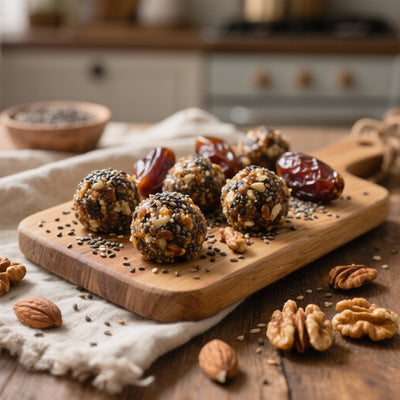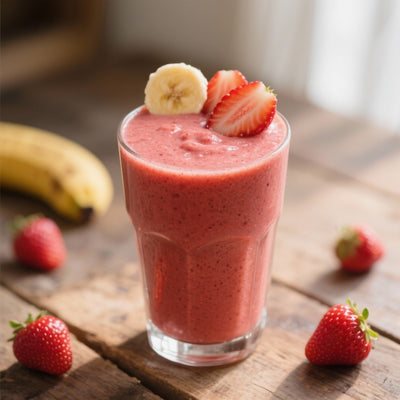My Routine for Consistent Energy: The Ultimate Guide
Do you often feel tired and lack energy on a daily basis? You're not alone. Many people struggle with chronic fatigue. Fortunately, there are solutions! Adopting a suitable routine can transform your energy levels and allow you to live each day to the fullest. In this article, I'll share my personal routine for consistent energy, based on simple and effective principles, validated by nutrition and wellness experts.
This routine doesn't require drastic changes, but rather a series of gradual and sustainable adjustments. We'll discuss the importance of nutrition, hydration, sleep, physical activity, and stress management. Get ready to discover practical tips to boost your vitality and say goodbye to persistent fatigue.
1. Hydration: The Foundation of Sustainable Energy
Water is essential for all our body's functions. Even mild dehydration can lead to decreased energy, headaches, and reduced concentration. It is therefore crucial to drink enough water throughout the day.
- Goal: Drink at least 2 liters of water per day.
- Tip: Keep a bottle of water handy and refill it regularly. Add fruit (lemon, cucumber, berries) for extra flavor.
2. Food: Your Body's Fuel
What you eat has a direct impact on your energy levels. Prioritizing unprocessed, nutrient-rich foods is essential for stable and sustained energy.
- Promote: Fruits and vegetables, lean proteins (chicken, fish, tofu), whole grains (oats, quinoa, brown rice), good fats (avocado, nuts, seeds).
- Avoid: Processed foods, high in added sugars and saturated fats, which cause energy spikes and crashes.
- Tip: Prepare your meals in advance to avoid impulsive and unhealthy choices.
3. Sleep: The Essential Recharge
Quality sleep is essential for optimal energy. Lack of sleep disrupts hormones, weakens the immune system, and affects concentration.
- Goal: To sleep between 7 and 9 hours per night.
- Tips: Establish a regular sleep routine, create a restful environment (darkness, quiet, cool temperature), avoid screens before bedtime.
"Sleep is a vital physiological need, just like eating, drinking, and breathing." - French Society for Sleep Research and Medicine
4. Physical Activity: The Engine of Energy
Regular exercise is essential for boosting energy, improving mood, and strengthening the body. No need for intense workouts; moderate activity is enough.
- Objective: To engage in at least 30 minutes of physical activity per day.
- Examples: Brisk walking, cycling, swimming, yoga, dancing.
- Tip: Incorporate physical activity into your daily routine (take the stairs, walk during your lunch break).
5. Stress Management: Mental Balance
Chronic stress depletes energy reserves. Learning to manage stress is crucial to preserving your vitality.
- Techniques: Meditation, deep breathing, yoga, progressive muscle relaxation, creative activities.
- Tip: Identify the sources of stress and put in place strategies to manage them (delegation, prioritization, communication).
6. Dietary Supplements (with caution): A Targeted Boost
In some cases, dietary supplements can be helpful to address deficiencies and boost energy. However, it is important to consult a healthcare professional before taking them.
- Examples: Vitamin D (especially in winter), magnesium, iron (in case of anemia), vitamin B12 (for vegetarians/vegans).
- Important: Dietary supplements are not a substitute for a balanced diet and a healthy lifestyle.
Conclusion: A Personalized Routine for Sustainable Energy
My routine for consistent energy is based on these fundamental principles: hydration, a balanced diet, restful sleep, regular physical activity, and stress management. It's important to adapt this routine to your needs and lifestyle. Experiment, be patient and persistent, and you'll quickly see the benefits on your energy levels and overall well-being.
Remember that the key is regularity and consistency. Gradually integrate these habits into your daily routine and make them a priority. You deserve to live a life full of energy and vitality!











